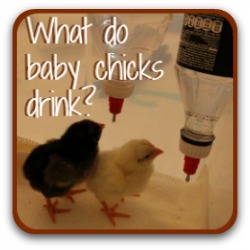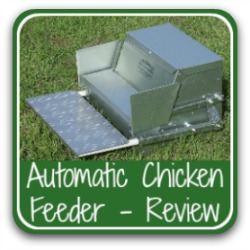- Home
- Drink
What do chickens drink, and how can we make sure they're getting enough liquid?
To some, what chickens drink will be self-evident.
But if you're just starting out with chickens, you may not know what the best drink is to help your flock stay healthy and happy.
On this page, you'll find links to articles all about the best possible liquids.
Each one has detailed, up-to-the-minute information based on evidence and scientific fact.
Not only when your flock is well, but what's best for them to drink when ill health hits?
You can be sure that, whatever your question about what's best for chickens to drink, it will be answered here, with all sources of information clearly described in each article.
Click on any of the buttons or headlines to go straight to the article.
Do chickens drink water?
This article was written after someone wrote to me saying they enjoyed giving their chickens alcohol. Don't ever give your chickens alcohol – unless you want to kill them!
Based on clear evidence, you'll learn about the best liquid for your flock, how much and how often chickens need to drink, how they ingest liquid and why that matters, and what happens if they become dehydrated.
What do baby chickens drink?
Should baby chicks drink anything different from adults? When should they first be given water, and how is it best to teach them to drink?
This article looks at the best liquids for chicks, and how to make sure it's kept clean and free from bacteria.
Using my own experience of different types of waterer, I suggest one which will keep your chicks safe and healthy.
Can chickens drink milk? Or beer?
Can chickens drink milk? What's the evidence from flocks that are fed milk and appear to thrive on it?
Not all milk is equal. Which is best for chickens: pasteurised or not? Cow's or goat's?
Is alcohol harmful to chickens? And why would you choose to give them alcohol in the first place?
Apple cider vinegar
There's a lot of hype around the internet about apple cider vinegar and chickens. It's claimed it cures more or less every ailment known to chicken keepers.
But what's the real story?
This article is based on researched studies. It looks at the myths, the proven benefits, the type of vinegar to use, when it's useful and, importantly, when not to allow your chickens to drink it.
Electrolytes in the chicken coop
Electrolytes are an important part of any chicken-keeper's first aid kit. But what exactly are they, and when should they be used?
This article examines the science of electrolytes, and gives detailed information about when they can be a life-saver.
There's also a recipe for a home made electrolyte drink, should you run out of the ready made product.
Keeping chickens hydrated
It's critically important to keep your flock hydrated, particularly in the summer months.
In this article, you'll discover how to make a frozen treat which they'll love. And how, as they're pecking it, the liquid it contains can help them sustain and even improve their hydration levels.
It's simple, it's quick, it uses items you may well have in stock. And most importantly, it may help save your chickens' lives.
- Home
- Drink













